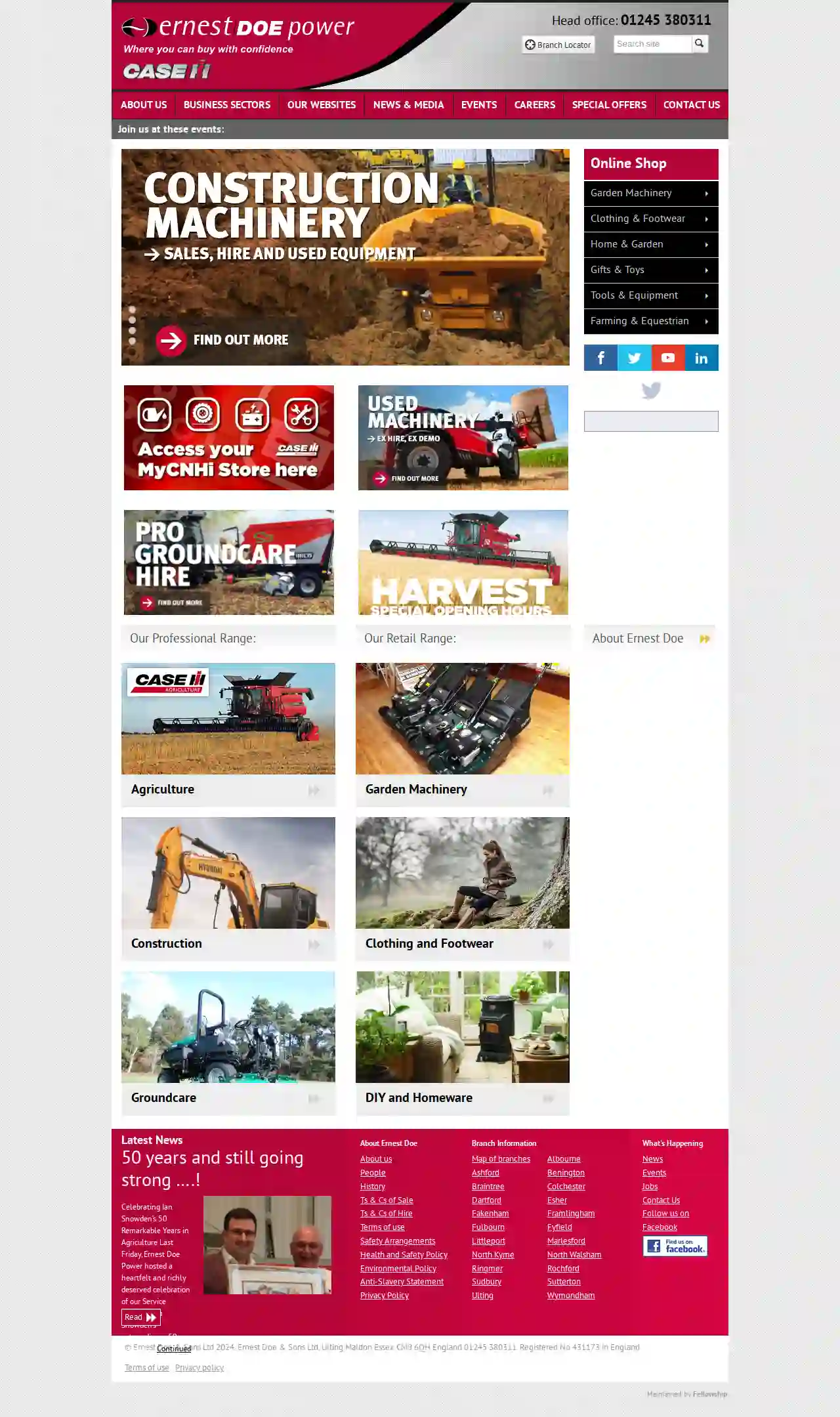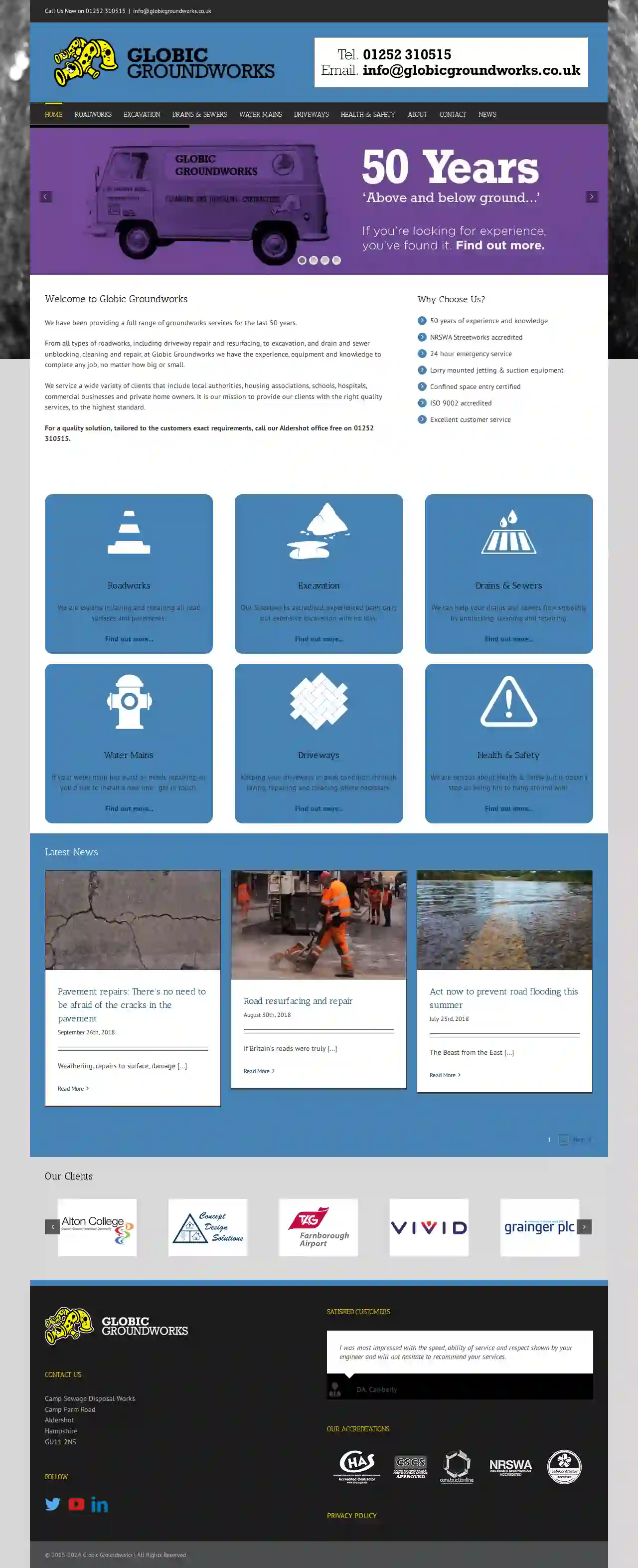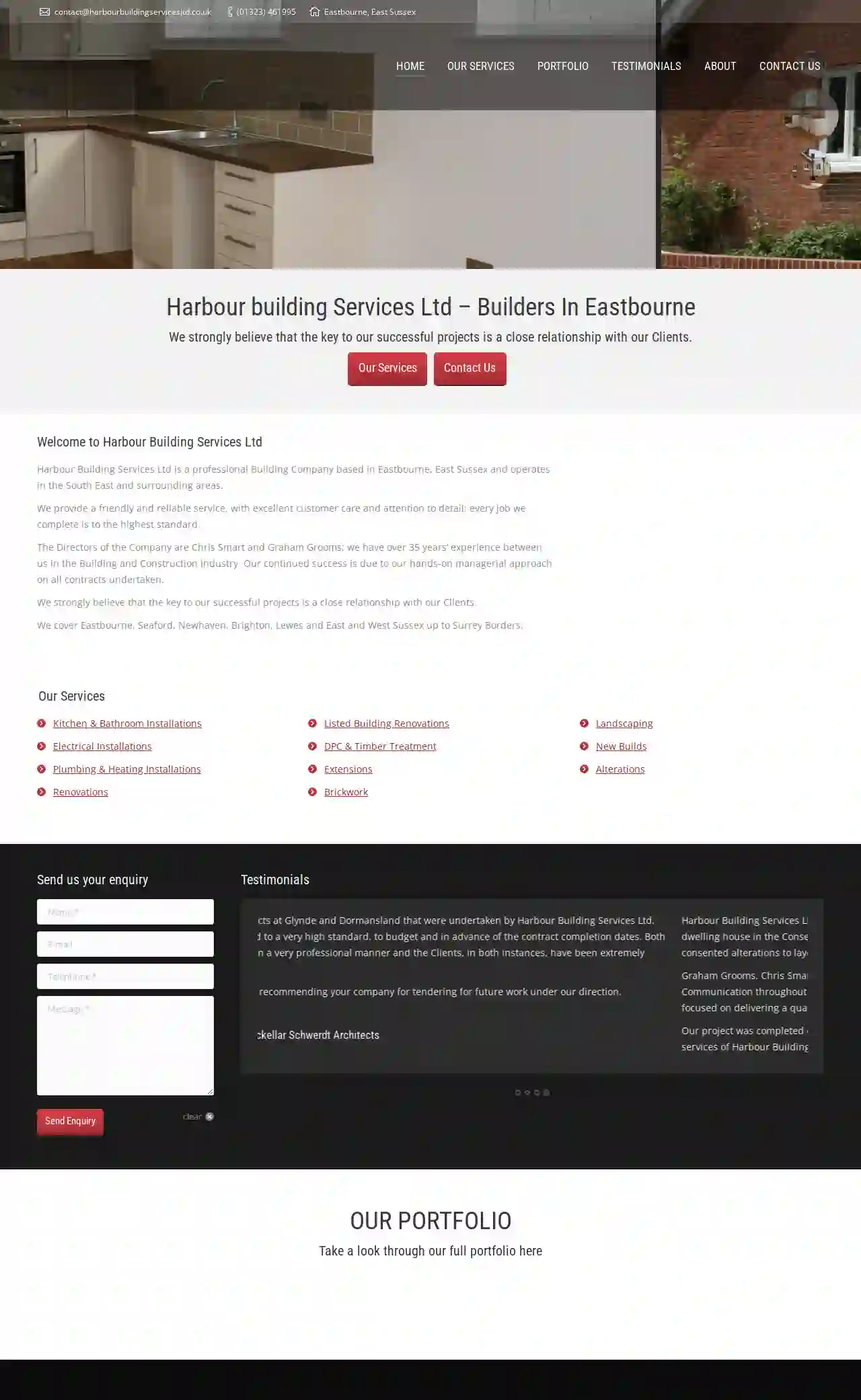Demolition Contractors Ashton
Find Demolition Services in Ashton
Get up to 3 Demo Companies quotes for your project today! Compare profiles, reviews, accreditations, portfolio, etc... and choose the best deal.

Stredder Construction
51 reviewsChard, GBStredder Group: Your Trusted Partner for Strip Out, Demolition, Construction, and Maintenance in Merseyside and the North West Since 2007, Stredder Group has been a leading provider of comprehensive construction and strip out services across Merseyside and the North West. We are renowned for our expertise in strip out projects, delivering exceptional results with a commitment to safety, efficiency, and customer satisfaction. Our team of highly skilled professionals is dedicated to exceeding expectations on every project. We understand the importance of meticulous planning, efficient execution, and clear communication to ensure a smooth and successful outcome. Whether you require a complete strip out, demolition, new build, refurbishment, or maintenance services, Stredder Group is your reliable partner. We are proud of our strong track record and the trust our clients place in us. Our commitment to quality, safety, and customer satisfaction is reflected in every project we undertake. Contact us today to discuss your project requirements and experience the Stredder Group difference.
- Services
- Why Us?
- Gallery
Get Quote
RELM Group Ltd - Construction & Consultancy
56 reviewsQuinton Hazell Enterprise Parc, Glan-Y-Wern Road, Mochdre, Colwyn Bay., Colwyn Bay, LL28 5BS, GBRELM Construction: Your Trusted Construction Partner in North Wales RELM Construction is a reputable construction company based in North Wales, specializing in planned and reactive maintenance, commercial refurbishment projects, and a wide range of construction services. We have a proven track record of delivering high-quality projects for both residential and commercial clients across North Wales and the North West. Our team of experienced professionals is dedicated to providing exceptional service and exceeding client expectations. We are committed to sustainability, quality, and safety, ensuring that every project is completed to the highest standards. Whether you need a small repair or a large-scale construction project, RELM Construction has the expertise and resources to handle it all. We offer a comprehensive range of services, including: • Bid Writing and Bill Preparation • Tendering and Estimating • Project Design & Drawings • Building Surveying • Freelance Quantity Surveying Services • Fire Remedial Works • Cost Management and Value Engineering • Building Control Applications • Self-Build Management Services • Party Wall Surveys • Damp Surveys • Dilapidation Surveys • Energy Consultants • Flood Risk Management RELM Construction is your one-stop shop for all your construction needs. Contact us today to discuss your project and let us help you bring your vision to life.
- Services
- Why Us?
- Gallery
Get Quote
Keystone Construction
1Edinburgh, GBWelcome to Keystone Construction A Specialist Groundworks Contractor Based in Scotland About Us Keystone Construction is a professional groundworks contractor, based in Edinburgh and working with partners throughout Scotland. What Keystone Can Do For You At Keystone Construction, we pride ourselves on delivering projects to the highest possible construction standards, in an efficient, cost-effective way. We are accomplished in a diverse range of groundworks specialities including: Groundworks Services We offer a comprehensive range of groundworks services, including: Earthworks / Clearance Site Clearance Bulk Cut & Fill Bulk Soil Import / Export Ground Remediation Foundations Strip, Pad & Raft Foundations Deep Pile Foundations Complex Engineered Solutions Soil Improvements Concrete Works Suspended Floor Slabs Power-Floated Concrete Floors Retaining Walls Formwork, Reinforcing, Placing Plotworks Utility Installation Hard Landscaping Street Lighting Roads / Drainage / SUDS Road Formation & Surfacing SUDS Ponds All Concrete, Plastic & Clay Piping Deep Drainage & Access Chambers Building Blockwork & Underbuilding Superstructure Brick & Blockwork For Housing Developments If your next project requires any of the services above, feel free to get in touch to discuss your specific needs. Experience Matters Specialists in Complex Projects The team at Keystone Construction has a wealth of experience in delivering complex groundworks projects. We take pride in our ability to work in tight and confined spaces, for example, on sites in close proximity to water, sites with impeded access and projects involving listed buildings in areas of historical significance. This experience, together with a continuing investment in the latest plant, machinery & technology, makes Keystone Construction a compelling choice when it comes to complex groundworks projects.
- Services
- Why Us?
- Gallery
Get Quote
Ernest Doe Power
4.276 reviewsErnest Doe & Sons Limited, Ulting, Maldon, CM9 6QH, GBAbout Ernest Doe Ernest Doe is a family-owned business that has been serving the agricultural, construction, and groundcare industries for over 100 years. We are committed to providing our customers with the highest quality products and services, and we are proud of our reputation for excellence. Our History Ernest Doe was founded in 1919 by Ernest Doe, a man with a passion for engineering and a vision for providing quality machinery to the local farming community. Over the years, the business has grown and expanded, but our commitment to our customers and our values has remained the same. Our Mission Our mission is to provide our customers with the best possible service and support, and to help them achieve their goals. We are committed to providing our customers with the highest quality products and services, and we are proud of our reputation for excellence. Our Team Our team is made up of experienced and knowledgeable professionals who are dedicated to providing our customers with the best possible service. We are committed to providing our customers with the highest quality products and services, and we are proud of our reputation for excellence.
- Services
- Why Us?
- Our Team
- Gallery
Get Quote
Globic Groundworks
1Camp Sewage Disposal Works, Camp Farm Road, Aldershot, GU11 2NS, GBWelcome to Globic Groundworks Globic Groundworks has been providing a comprehensive range of groundworks services for the past 50 years. From all types of roadworks, including driveway repair and resurfacing, to excavation, and drain and sewer unblocking, cleaning and repair, Globic Groundworks possesses the experience, equipment, and expertise to tackle any project, regardless of size. We cater to a diverse clientele, including local authorities, housing associations, schools, hospitals, commercial businesses, and private homeowners. Our unwavering commitment is to deliver high-quality services that meet the highest standards, exceeding our clients' expectations. For a tailored solution that precisely aligns with your specific requirements, contact our Aldershot office toll-free at 01252 310515.
- Services
- Why Us?
- Accreditations
- Testimonials
- Gallery
Get Quote
Select Driveways & Patios Ltd
551 reviewsBizspace Atlantic Business CentreAtlantic StAltrincham, Altrincham, WA14 5NQ, GBAbout Select Driveways & Patios Ltd Select Driveways and Patios Ltd specialise in a wide variety of driveways and block paving work, with many years experience with in the trade. Our experienced and professional staff can offer you free impartial advice on all your block paving driveway requirements. With years of experience in the building field, you can be confident of our quality and reliability. All our work is fully guaranteed and carried out to your total satisfaction. Select Driveways & Patios offer a full range of traditional colours and designs along with a complete service, with site preparation if necessary. Our Services We can provide the following Driveways & Landscaping services: Decorative walling Tegula Paving Tarmac Driveways Concrete Driveways Imprinted Concrete Driveways Gravel Driveways Cobblestone Driveways Glass Driveways Resin Driveways Block Paving Indian Stone Slabbing Slabbing Fencing Landscaping If you have a particular style in mind that is not shown here, please discuss your ideas with us as your complete satisfaction is our sole aim.
- Services
- Why Us?
- Testimonials
- Gallery
Get Quote
Ten Four Landscape Construction
517 reviews4 Walker Road, Norfolk, 02056, GBTen Four Landscape Construction: Your Norfolk, MA Landscaping Experts Ten Four Landscape Construction is a full-service landscaping company in Norfolk, MA, specializing in hardscape construction, lawn maintenance, commercial snow removal, and more. Owner Seth Dias started working in landscaping as early as elementary school, helping his neighbors. His passion for landscaping grew, leading him to attend Norfolk County Agricultural High School to further his knowledge. Ten Four has flourished due to a commitment to honesty, accuracy, and open communication. They understand that every project is different, which is why they take the time to listen to the customer and work with a professional local landscape designer and highly-experienced crews to achieve their goals and exceed expectations. Whether you need routine seasonal maintenance or are looking to completely transform your property with a new patio, walkway, or outdoor living area, you can count on the team at Ten Four to take your property to the next level. Ten Four Landscape Construction is a family-owned and operated business that has been serving the Norfolk, MA area since 2012. They are fully licensed and insured, and they take pride in providing fair and honest estimates. Their projects stay on-time and on-budget, and you'll work with a professional landscape designer. They also offer 24/7 service for commercial snow removal.
- Services
- Why Us?
- Our Team
- Testimonials
- Gallery
Get Quote
Harbour Building Services Ltd
1Eastbourne, GBWelcome to Harbour Building Services Ltd Harbour Building Services Ltd is a professional Building Company based in Eastbourne, East Sussex and operates in the South East and surrounding areas. We provide a friendly and reliable service, with excellent customer care and attention to detail; every job we complete is to the highest standard. The Directors of the Company are Chris Smart and Graham Grooms; we have over 35 years’ experience between us in the Building and Construction Industry. Our continued success is due to our hands-on managerial approach on all contracts undertaken. We strongly believe that the key to our successful projects is a close relationship with our Clients. We cover Eastbourne, Seaford, Newhaven, Brighton, Lewes and East and West Sussex up to Surrey Borders.
- Services
- Why Us?
- Testimonials
- Gallery
Get Quote
Taylormade Building Services Teddington
57 reviews20 Upper Ham Road, Richmond, TW10 5LA, GBAt TaylorMade, we cover all aspects of Plumbing, Heating, and Building Services. Our charging system is transparent with competitive rates which are ensured by monitoring our competitors on a weekly basis. Our trades people are all highly-experienced and at the top of their trade to give you complete peace of mind. Our established reputation gives added assurance that you are using one of the most reliable and respected names in the business.
- Services
- Why Us?
- Testimonials
- Gallery
Get Quote
London & City Contracts Ltd
1Unit 1, Wanstead, London, E11 2LW, GBBuilding Projects and Relationships since 1998. LCCL. With you all the way Welcome to London & City Contracts London's Specialist Building and Refurbishment Company Providing Quality Services and Value To Private and Commercial Clients since 2002 Your Challenge - Our Solution L&C Contracts are an established Property Refurbishment company providing the highest levels of quality, service and value to private and commercial clients in London and the South of England. Our Mission Our mission at L&C Contracts is to provide our clients with exceptional quality services, finished to the highest possible standards. You win trust with hard work and customer satisfaction. The high level of repeat business that we gain is a true testimonial to the standards we maintain and the promises that we keep. New Build& Refurbishments Specialist Design We work with some of the most highly regarded Architects, designers and specialists to complete high quality new build and refurbishment projects. Our Approach Our approach is based on listening to our clients. We will help steer, develop and support your drive to realise your vision. Delivery We will deliver your project no matter how complex on time and within budget to the highest possible standards. Our Motto 'Your Challenge - Our Solution'
- Services
- Why Us?
- Gallery
Get Quote
Over 11,537+ Excavation Businesses in our network
Our excavation pros operate in Ashton and surrounding areas!
ExcavationHQ has curated and vetted the Best Excavation Contractors near Ashton. Find a top & reliable pro today.
Frequently Asked Questions About Demolition Contractors
- Dust Suppression: Use water spraying, misting systems, or other dust suppression techniques to control airborne particles.
- Noise Barriers: Erect temporary noise barriers around the demolition site to reduce noise transmission to nearby properties.
- Work Schedule: Schedule noisy demolition activities during permitted hours to minimize disturbance to neighbors.
- Communication: Keep neighbors informed about the demolition schedule and any potential disruptions.
- Implosion: Using explosives to collapse a structure inwards rapidly. Suitable for large buildings in open areas.
- Wrecking Ball: Swinging a large steel ball to impact and break down the structure. Effective for bringing down walls and other solid elements.
- High-Reach Demolition: Utilizing specialized excavators with extended arms and demolition attachments for dismantling tall structures piece by piece.
- Selective Demolition: Removing specific parts of a building while preserving other sections. Often used in renovation projects.
- Deconstruction: Carefully dismantling a building to salvage reusable materials, reducing waste and environmental impact.
- Feasibility Studies: Assessing the viability and challenges of a demolition project.
- Demolition Planning: Developing demolition plans, including method selection, sequencing, and safety procedures.
- Permitting Assistance: Navigating the demolition permitting process and ensuring compliance with regulations.
- Hazardous Material Surveys: Identifying and managing hazardous materials, such as asbestos and lead paint.
- Cost Estimating: Providing accurate cost estimates for demolition services.
- Project Management: Overseeing the demolition process and ensuring it proceeds as planned.
- 'Can I see proof of your licensing and insurance?' Verify their credentials and coverage.
- 'What experience do you have with projects like mine?' Ensure they have relevant expertise.
- 'Can you provide references from past clients?' Check their reputation and customer satisfaction.
- 'What are your safety protocols?' Prioritize contractors who emphasize safety.
- 'How will you handle hazardous materials?' Ensure they have proper procedures for asbestos or lead abatement.
- 'What is your timeline for completing the project?' Understand the project duration.
- 'How will you manage noise, dust, and debris?' Discuss mitigation measures for minimizing disruption.
- 'What are your payment terms?' Clarify payment schedules and any required deposits.
How can I minimize the dust and noise from demolition?
What are the different types of demolition?
What is the role of a demolition consultant?
What questions should I ask a demolition contractor before hiring them?
How can I minimize the dust and noise from demolition?
- Dust Suppression: Use water spraying, misting systems, or other dust suppression techniques to control airborne particles.
- Noise Barriers: Erect temporary noise barriers around the demolition site to reduce noise transmission to nearby properties.
- Work Schedule: Schedule noisy demolition activities during permitted hours to minimize disturbance to neighbors.
- Communication: Keep neighbors informed about the demolition schedule and any potential disruptions.
What are the different types of demolition?
- Implosion: Using explosives to collapse a structure inwards rapidly. Suitable for large buildings in open areas.
- Wrecking Ball: Swinging a large steel ball to impact and break down the structure. Effective for bringing down walls and other solid elements.
- High-Reach Demolition: Utilizing specialized excavators with extended arms and demolition attachments for dismantling tall structures piece by piece.
- Selective Demolition: Removing specific parts of a building while preserving other sections. Often used in renovation projects.
- Deconstruction: Carefully dismantling a building to salvage reusable materials, reducing waste and environmental impact.
What is the role of a demolition consultant?
- Feasibility Studies: Assessing the viability and challenges of a demolition project.
- Demolition Planning: Developing demolition plans, including method selection, sequencing, and safety procedures.
- Permitting Assistance: Navigating the demolition permitting process and ensuring compliance with regulations.
- Hazardous Material Surveys: Identifying and managing hazardous materials, such as asbestos and lead paint.
- Cost Estimating: Providing accurate cost estimates for demolition services.
- Project Management: Overseeing the demolition process and ensuring it proceeds as planned.
What questions should I ask a demolition contractor before hiring them?
- 'Can I see proof of your licensing and insurance?' Verify their credentials and coverage.
- 'What experience do you have with projects like mine?' Ensure they have relevant expertise.
- 'Can you provide references from past clients?' Check their reputation and customer satisfaction.
- 'What are your safety protocols?' Prioritize contractors who emphasize safety.
- 'How will you handle hazardous materials?' Ensure they have proper procedures for asbestos or lead abatement.
- 'What is your timeline for completing the project?' Understand the project duration.
- 'How will you manage noise, dust, and debris?' Discuss mitigation measures for minimizing disruption.
- 'What are your payment terms?' Clarify payment schedules and any required deposits.